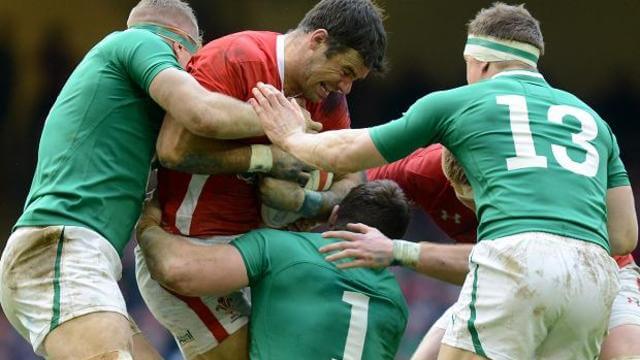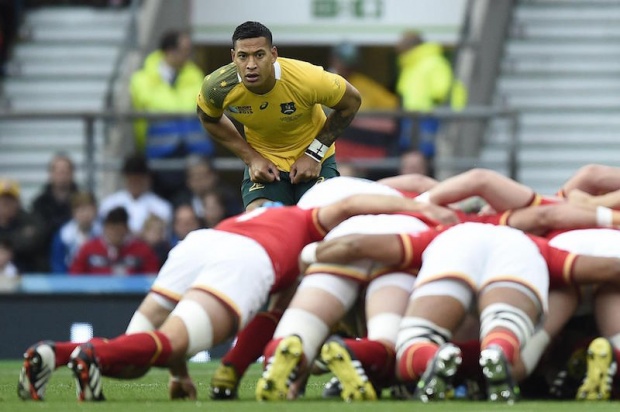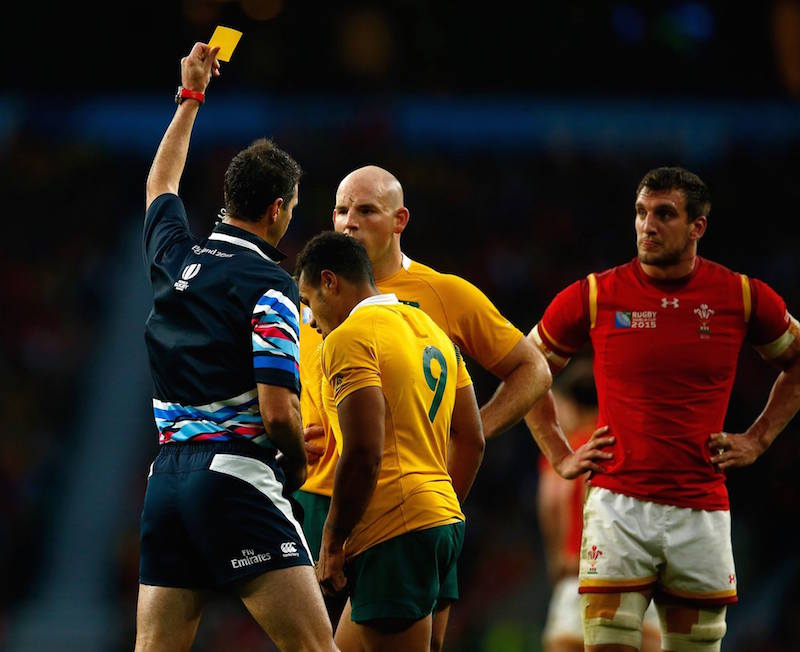BRIAN SMITH (ex Wallaby and England attack coach) outlines his thoughts on the Wallabies vs Wales match for Richard Edwards from G&GR.
Both teams provided a defensive master-class
What an arm-wrestle of a match that was.
That period of 10 minutes or so late in the second half, when Australia was down to 13 players, was one of the grittiest defensive efforts seen in ages. Hat’s off to the boys and the coaching staff. They did themselves and their country proud.
But to be fair, both teams defended outstandingly, although in different ways.
The defensive coach for Wales, Shaun Edwards, is a very smart guy and he knew Wales were going to have to come up with a special effort to knock off the Wallabies after 10 consecutive losses.
He took a little bit out of Ireland’s tactics when they played Australia in the 2011 World Cup by getting his players to do what’s called the ‘choke’ tackle.
That’s where they double or triple man an attacking player and hold them up long enough for the ref to blow the whistle and turn-over possession.
On top of this, Edwards also got Wales to play a very well organised ‘blitz’ defense.
It was a specific plan that Edwards put together to throw Australia off their game and it was very effective. The choke tackle robbed us of lots of possession and the blitz suffocated us in attack.
Later in the week, Brian is going to run through some things Australia could work on to counter the choke tackle and blitz defense.

Both cards were very harsh
That Australia was able to hold their line with 13 players for a tick under 10 minutes was just unbelievable.
But just as unbelievable was how Australia wound up in that position to begin with.
Their discipline had been very good. Ironically it was Wales who had been warned a few times and expectations were that one of their players would wind up in the bin at the next indiscretion.
Just how Australia wound up with two in the bin is beyond me. Neither of those yellow cards should have been awarded.
The Genia one should have been another penalty and a warning. And the Mumm one, that was just a straight up first offense. It’s not like it had happened a couple of times and Mumm was being really cynical.
Even the card handed out to Wales in the final minutes was unnecessary. They were scrambling and as the replay showed, the incident didn’t have any great impact on Australia’s play or scoring prospects.
The thing about Craig Joubert is he loves to make the big calls and he loves the controversy that goes with it. He thinks that’s what is going to get him rewarded.
He is a very dangerous referee for a coach and he makes coaches very nervous. He has a tendency to turn potentially outstanding test matches into arm-wrestles.
Unfortunately, he thinks the show is all about him and not about facilitating a great display. It’s a shame because he doesn’t really have a great feel for the game.
Injuries will create headaches for Australian coaches
On a different matter, everyone is now looking at the injuries we are starting to pick up.
Pocock has calf problems and they can be difficult to get over. Also Folau is clearly playing hurt and hasn’t had the impact we all expected.
These and other injuries are going to test the squad and give Cheika and his fellow coaches some headaches as we move into the play-offs.
With Australia having finished top of Pool A, they have moved into the potentially easier side of the play-off draw, with Scotland their next opponent.
But there is no way Cheika is going to take the foot off the accelerator and pick anything but our best team.
And that’s where things get really interesting.
Do you pick a player this week who is carrying an injury because ordinarily they are your best option and hope they are able to reach at least 80% or more of their potential?
Or do you give them a week off to freshen up and bring in someone else who is fit but doesn’t suit the game plan and overall balance of the side as well?
Both options carry risks.
Cheika will assess each situation on a case-by-case basis. So far, he has made the right calls and we can expect that he will continue to do so.

Australia is showing good versatility
What made the Australian performance so excellent this week was the stark contrast to the previous week’s performance.
They are showing an ability to play in top gear in different ways when required.
This versatility should do them well during the play offs, given that if they press ahead in the tournament they are likely to encounter quite different styles each week.
Last week the question was asked whether Australia are the real deal.
They are and Cheika and his coaching colleagues are making their counterparts in other squads feel a tad nervous as we move into the business end of the tournament.


